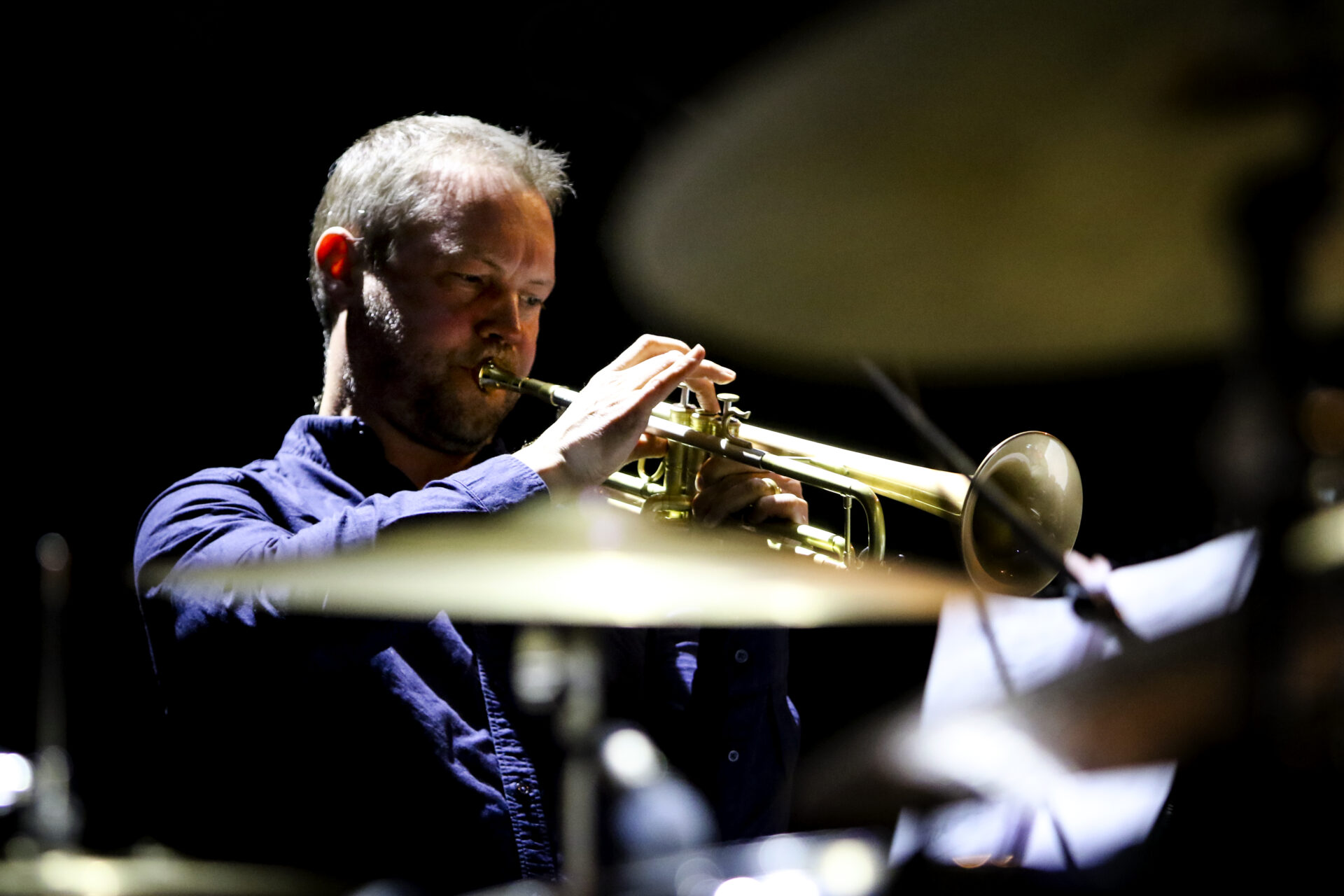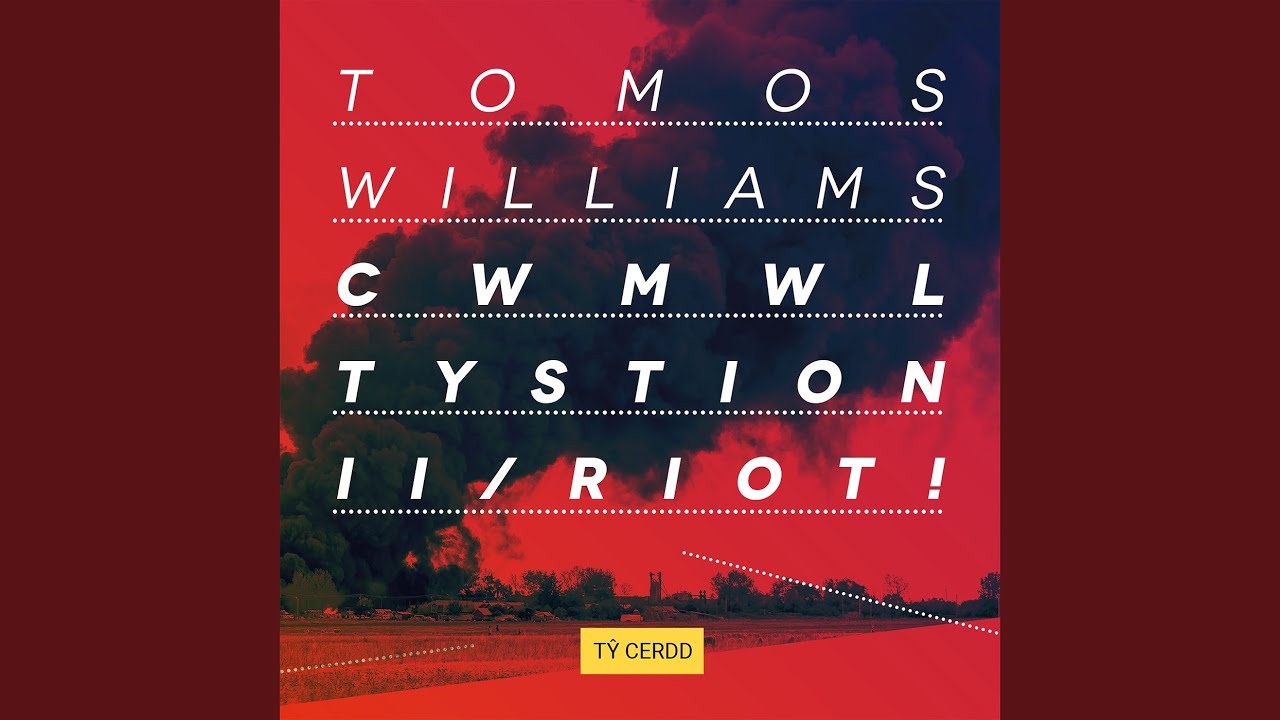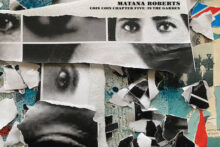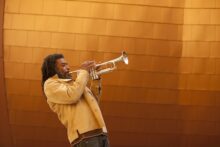In 1928, the African-American singer, actor and civil rights activist Paul Robeson was returning from a West End show when he came across a chorus of unemployed Welsh miners. They had walked all of the 140-plus miles from their homes in Rhondda to London, waving banners and singing in protest against the mass unemployment and hardship they were enduring. It would be the beginning of Robeson’s rich and reciprocal relationship with the Welsh labour movement, which would go on to span performances, activism, and even a role as coal miner in the 1940 Welsh film Proud Valley. In 1950, amidst Cold War tensions, Robeson’s passport was revoked by the US State Department due to his left-leaning politics, so it was whilst stranded in the US, in October 1957, that he gave a recital through a telephone line to a packed audience in Porthcawl Pavilion as part of the Miners’ Eisteddfod. An eisteddfod is a celebration of Welsh music and poetry, and in this instance, Robeson performed a selection of songs, including the spiritual ‘Didn’t My Lord Deliver Daniel?’ and ‘Schubert’s Lullaby’, while the Treorchy Male Voice Choir sang ‘Y Delyn Aur’ and ‘We’ll Keep a Welcome’ in response. This moment, dubbed the ‘Transatlantic Exchange’, comes up time and again in Welsh modern history, and most recently in the composition ‘Paul Robeson Ac Eisteddfod Y Glowyr 1957’ by Welsh trumpeter Tomos Williams. Angular yet meditative, a repeating motif hints at Coltrane’s A Love Supreme as it surges through a backdrop of spiritual harp cadenzas and off-kilter piano.
The tune appears on Williams’ 2021 album Cwmwl Tystion / Witness, the first instalment of the Cwmwl Tystion trilogy. Comprising a series of performances and resulting albums, Cwmwl Tystion explores aspects of Welsh identity, history, and culture through the mouldable folds of the jazz idiom, into which Williams introduces repertoire from the Welsh folk tradition. This fusion, in a nod towards Robeson’s activism, embodies the core themes of Cwmwl Tystion: internationalism, openness, and the idea of shared humanity.
Over a Zoom call, Williams recounts the beginnings of Cwmwl Tystion in a self-deprecating manner. “I was starting to think, ‘Well hang on, I’m getting older. I can’t just wait for other people to do stuff. Maybe I should do something.’”Williams, originally from Aberystwyth, was already involved in the Welsh music scene as a member of folk group Fernhill and the folk jazz fusion group Burum, as well as various side projects, but these thoughts, which occurred around 2017 during the fall-out of the Brexit vote, where an ideologically-charged referendum proved divisive for Wales, were particularly catalysing. He’d also come across Wadada Leo Smith‘s momentous 4-disc box set Ten Freedom Summers a few years prior to that, in which the musician had navigated the tumultuous events of the Civil Rights Movement across 19 tracks, part composed and part improvised over 34 years of intermittent creation. Williams describes the discovery as like a switch turning on.
“It’s all about the African-American experience throughout the 20th century and before that,” Williams says of Smith’s work. “The titles are very specific, but the music is just massive. It has gravitas, it has depth, it has everything. I thought, ‘Wales needs something like this.’”
Matana Roberts‘ Coin Coin albums, which Williams also cites as a clear influence, inhabit a similar paradigm. In them, Roberts combines her lived experience with that of her ancestors to explore overarching themes of racism, oppression, and liberation, a series that now spans five albums. Cwmwl Tystion is a clear reference to these two projects in its abstraction of political events through the kind of musical framework employed by Smith and Roberts, but as Williams explains, the point of departure is its questioning of what it means to be Welsh.
“With the whole Brexit thing, there was just a constant bombardment of one kind of identity. There was no allowance for being anything different from this sort of south east of England attitude, if you like, [the idea that] that’s how everybody sees the world, and that’s what Britain is. I’ve got a big problem with Britain to start off with, but equally as a Welsh person within Britain, you’re completely different, and equally within Wales, there’s multiple different perceptions of Welsh identity. I’m Welsh, whatever that means. And so then this is the experience that I have. Let’s put it out there.”
With funding from Welsh music charity Tŷ Cerdd and Arts Council Wales, Williams toured Cwmwl Tystion’s first instalment Witness in 2019 with an all-Welsh band, featuring Francesca Simmons on violin and saw, Rhodri Davies on harp and electronics, Huw Warren on piano, Huw V Williams on bass, and Mark O’Connor on drums. Cwmwl Tystion II / Riot, which toured in 2021, consisted of a slightly different line-up, including Soweto Kinch on saxophones and spoken word and Orphy Robinson on vibraphone. The music then was raw, fiery, and more dissonant than Witness. Tracks like ‘Cardiff Race Riots 1919’ and ‘Mahmood Mattan’ – concerning the wrongful conviction and execution of a Somali seaman of the same name, who was falsely accused of murdering a woman in Cardiff in 1952 – reference the more uncomfortable side of Wales’ past. Williams explains how he wanted to deal with racist attitudes that are still present today, but often overlooked due to Wales’ status as “the perennial underdog.”
“Every riot that we talk about in Welsh history is generally against the English. You’re giving it to the man and the man is generally, in this context, the majority culture, which is English. Whereas in reality, in the global sense, Wales is a part of that dominating British Empire. We are part of colonial history, and if we want to be realistic, we’ve got to deal with our role in the big picture. We can’t continually play the underdog card”.
In the liner notes to Witness, Williams describes it as “a paean to the nation and its people… by some of the finest musicians in Wales.” The music is a freeing journey of open-ended improvisation, dissonant and angular, yet there’s also a hint of the dirge-like and anthemic. This is owing to the presence of traditional Welsh tunes embedded within the material. ‘Pa Beth yw Cenedl?’ for example contains the folk melodies ‘Castell Rhos Y Llan’, ‘Lloer Dirion’, and ‘Marwnad Yr Ehedydd’.
Williams is quick to state that it’s through Fernhill that he gained access to the Welsh folk tradition. Prior to this, his exposure had been limited to what he’d learned in primary school. It’s a somewhat bittersweet anecdote. Owing to various factors, such as the lack of surviving manuscript materials, laws like the Acts Of Union in 1536 and 1543 which prohibited the Welsh language, and the English repression of Welsh culture coupled with the heavy influx of English traditional music into Wales, Welsh folk music has not survived to the same extent, or reached the same levels of renown, as Scottish or Irish. Yet it’s through groups like Fernhill, as well as remedial archival work by other artists like Lleuwen Steffan and Llio Rhydderch, that Williams now has a finer attunement to his country’s musical history.
“Fernhill introduced me to so many different tunes that I’d never heard of. And they were incredible, you know, they were really very different to the jigs and reels that you hear from Scotland and Ireland, they’re far more minor and kind of dour. Those are the ones I like, those are the ones that I picked up on.”
It’s also the freedom intrinsic to this avant-garde style of playing which allows for a more open-ended questioning of the themes that Williams is dealing with. The intent isn’t to provide answers, he says, but to raise issues and explore them open-endedly.
Williams is now touring the third and final iteration of the Cwmwl Tystion series, titled Empathy. Some of the performers from Witness and Riot! are involved: Eädyth Crawford on vocals and electronics, Mark O’Connor on drums, and Simon Proffitt on live visuals. Further additions include Mared Williams, a singer from North Wales with a musical theatre background, as well as French-Vietnamese virtuoso guitarist Nguyên Lê. Then there’s Melvin Gibbs on electric bass. Gibbs is a founding member of Harriet Tubman, an avant-garde group inspired by the American abolitionist of the same name, with a particularly strong influence on Williams.
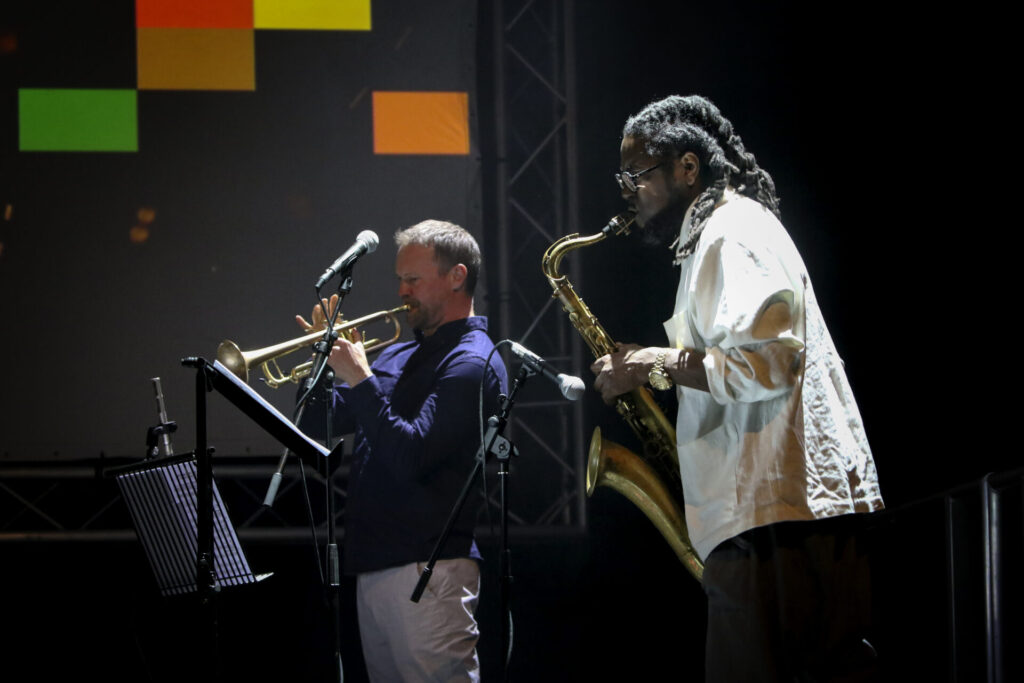
“I knew of them from years ago, but they’ve had a few albums out recently and they’ve just been incredible. Melvin is central to that sound, it’s only a trio. So I thought, well why not? Why not go to the source? So it’s unbelievable that he’s willing to come, one of the guys that’s really inspired me, that’s been a driving force inside my head.”
Thematically, Empathy is a return to the original impetus behind the project. “There’s no more empathy or debate anymore, only this idea of ‘the other,’” Williams explains. Again, he’ll be referring to specific events and issues, including the polemical Welsh Nots, the tragic Aberfan disaster, and the idea of Wales as a nation of sanctuary. “It’s what we call ourselves now, to welcome asylum seekers”, remarks Williams dryly of the latter topic, “ I hope that we are, but I’m not sure, you know?”
The phrase ‘Cwmwl Tystion’ translates as ‘cloud of witnesses’, and is taken from the poem ‘Pa Beth yw Dyn?’ (What is Man?) by Welsh nationalist poet Waldo Williams. Further excerpts are interlaced as lyrics throughout the project. But as our own Williams is quick to point out, it’s also a phrase which crops up in African-American Christianity, as well as the works of Martin Luther King and Cornel West. In drawing this parallel, Williams once again echoes the internationalist mindset of the great Paul Robeson, who makes another appearance in Empathy. This time, Williams has composed a piece around a 1938 performance at Mountain Ash Pavilion in South Wales, Robeson’s tribute to those who had fought and died as firefighters in the Spanish Civil War.
“He came to Mountain Ash and asked to sing. It’s an outward-looking Welshness, not an inward-looking Welshness, and Paul Robeson really symbolises that.”
Tomos Williams is currently touring Cwmwl Tystion III / Empathy throughout Wales, followed by a performance at London’s Cafe OTO on 8 June. For full details click here.

